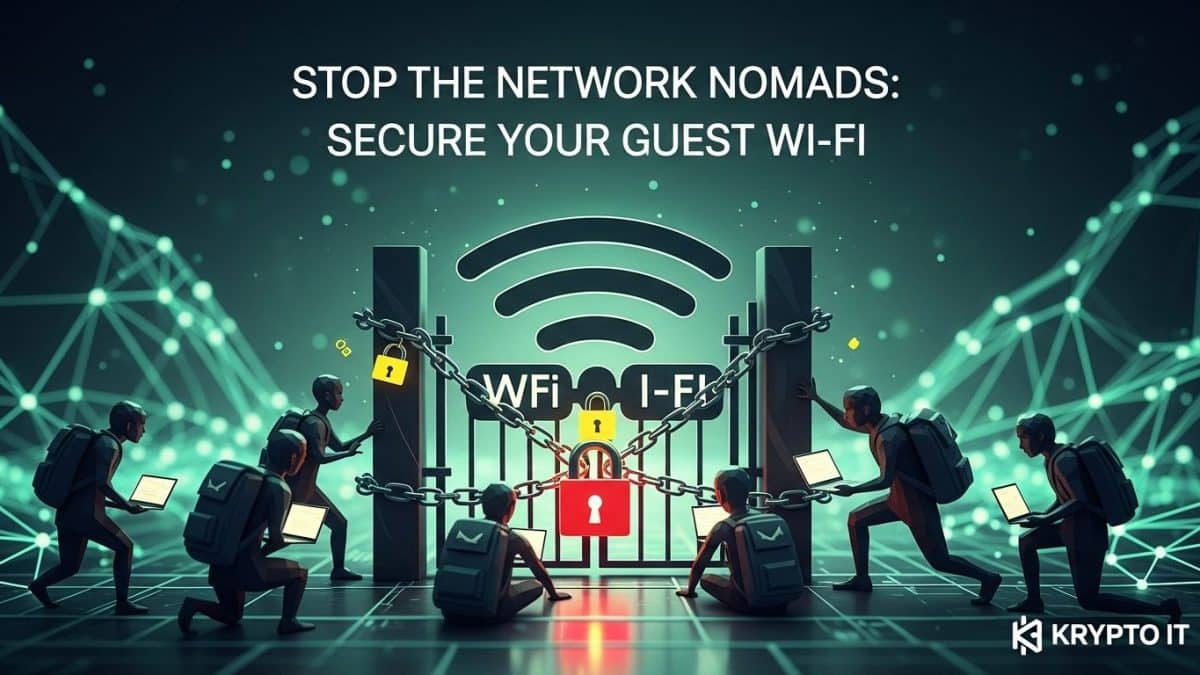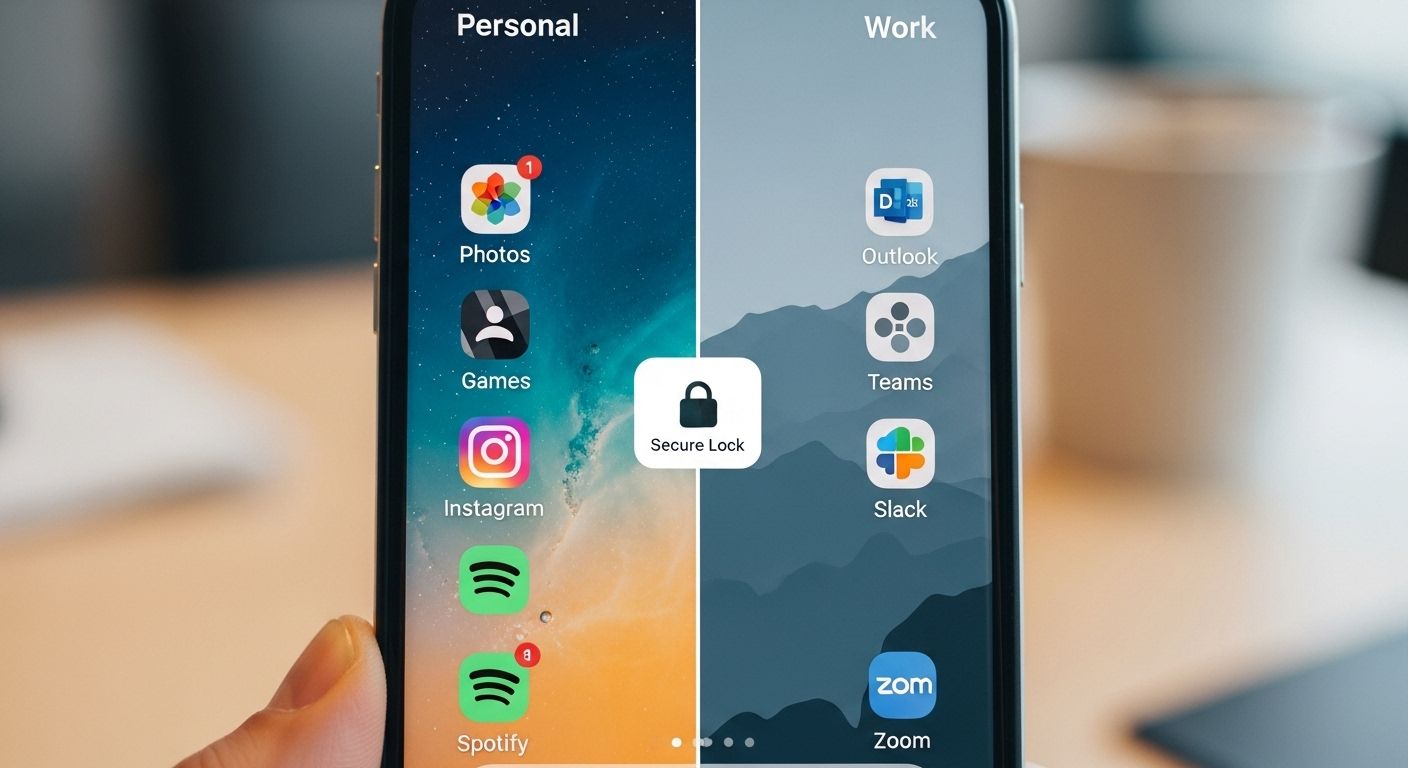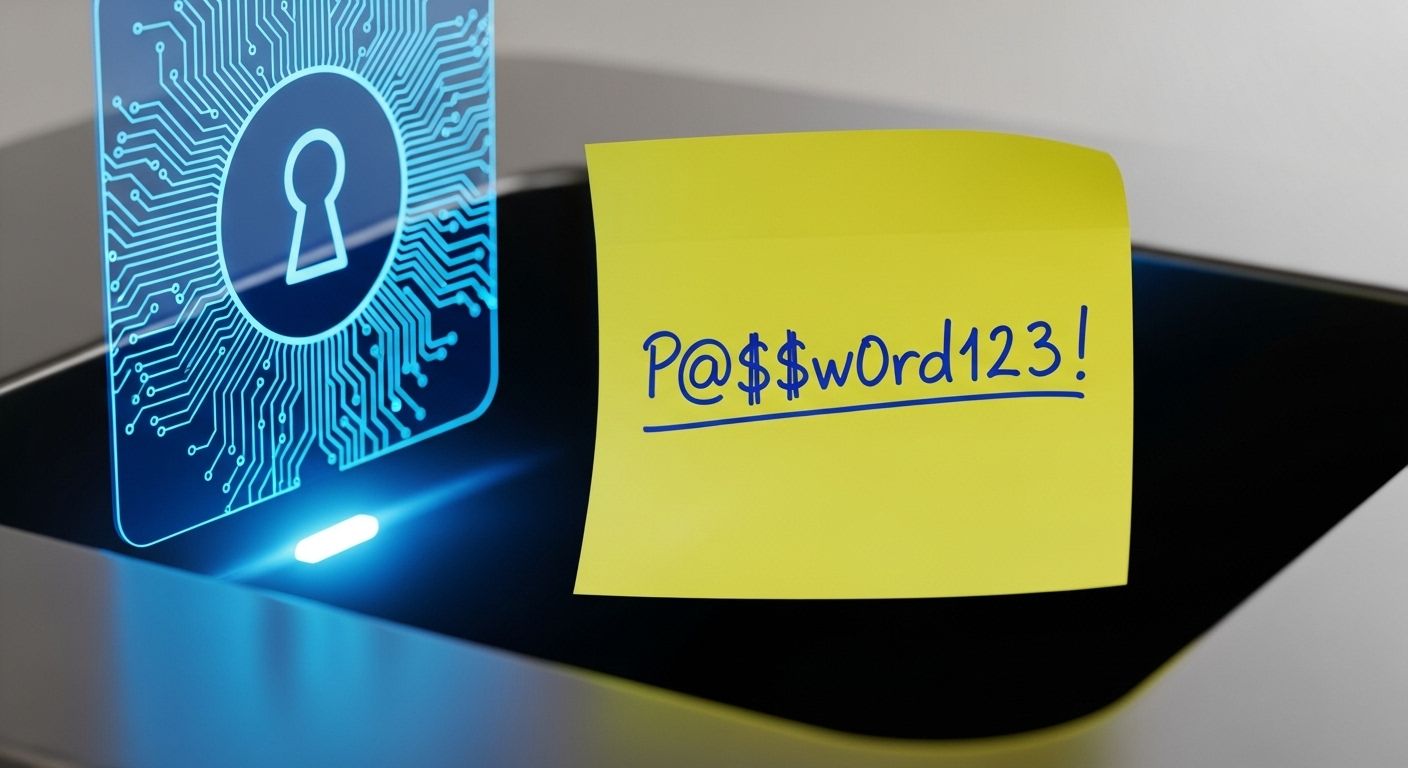
Your Network’s First Gatekeeper
August 28, 2025
The Dangers of ‘Free’: Why Your Business Needs a Paid VPN
September 1, 2025Why an Unsecured Guest Network is a Backdoor for Hackers
For any business in Houston, offering free Wi-Fi to customers and visitors has become a standard practice. It’s a customer-friendly perk, a way to enhance their experience, and a professional courtesy. But beneath the surface of this seemingly simple gesture lies a significant cybersecurity risk: an unsecured or improperly configured guest Wi-Fi network can become a direct pathway for cybercriminals to infiltrate your business’s sensitive data and critical systems.
Think of your corporate network as your Houston office’s inner sanctum, where your sensitive client data, financial records, and operational secrets reside. If your guest Wi-Fi is not properly isolated, it’s like leaving the front door unlocked with a giant “Welcome!” sign on it. This blog post will delve into why a separate, secure guest network is a non-negotiable for every Houston Small and Medium-sized Business (SMB) and provide a practical guide to fortifying this crucial point of entry.
The Dangers of a Shared Network: From Nomads to Intruders
Allowing guests to connect to the same network as your employees is one of the most fundamental cybersecurity mistakes an SMB can make. Here’s why:
- Lateral Movement: This is the most dangerous risk. An attacker can gain access to your network through a compromised guest device (a personal phone, a laptop, etc.). Once on the network, they can move laterally, scanning for and exploiting vulnerabilities on your employees’ computers, servers, printers, or other network-connected devices. This can lead to data breaches, malware infections, and ransomware attacks.
- Eavesdropping: If your guest network is unsecured and unencrypted, a malicious actor can easily use tools to “eavesdrop” on all the traffic passing through it. This can lead to the interception of sensitive data, including login credentials and confidential business communications from your employees’ devices, especially if they are inadvertently connected to the wrong Wi-Fi.
- Malware Spread: A device with a malware infection (e.g., a customer’s phone or a contractor’s laptop) can easily spread that infection to other devices on the same network. This turns your guest network into a breeding ground for threats that can then jump to your corporate network if they are not properly isolated.
- Network Performance Degradation: While not a direct security threat, an unsecured and unmanaged guest network can lead to a significant slowdown in your business operations. A single guest streaming a large video file can consume a massive amount of bandwidth, impacting your employees’ ability to work and your ability to serve customers.
The Core Solution: Network Segmentation
The key to a secure guest Wi-Fi network is network segmentation. This is the practice of dividing your network into smaller, isolated zones. A separate guest network is essentially a highly controlled segment that is completely isolated from your corporate network. It’s like having a digital “velvet rope” that allows guests to access the internet but prevents them from interacting with your internal business assets.
This is a fundamental principle of a Zero Trust security model, which operates under the assumption that no user or device—inside or outside your network—can be trusted by default.
A Practical Guide to Securing Your Guest Network
Implementing a secure guest network doesn’t have to be complex or expensive. Most modern business-grade routers and Wi-Fi access points have a built-in guest network feature that can be enabled with a few simple steps. Here is a checklist for your Houston SMB:
- Enable the Guest Network Feature: This is your first and most important step. In your router or access point’s admin settings, enable the guest network.
- Assign a Strong, Unique Password: Use a strong, complex password for your guest Wi-Fi that is different from your corporate Wi-Fi password. Change this password regularly.
- Use Modern Encryption: Ensure your guest network is secured with WPA2 or, even better, WPA3 encryption. This encrypts all traffic between the guest device and your access point, preventing eavesdropping.
- Isolate the Guest Network: Verify that your guest network is configured to be completely isolated from your corporate network. This is usually an option called “Guest Isolation” or “AP Isolation” in your router’s settings. It prevents guests from seeing or communicating with any of your corporate devices.
- Enable a Firewall with Access Controls: Use your firewall to create access control lists (ACLs) that restrict what guests can access on the internet. You can use these to block risky websites or services that are not necessary for a public guest network.
- Limit Bandwidth and User Session Time: To prevent a single user from hogging your bandwidth, you can set a bandwidth limit for your guest network. You can also configure a session timeout so that guests have to re-authenticate after a certain period.
- Regular Auditing and Review: Regularly review the list of connected devices on your network to ensure no unauthorized or suspicious devices are connected to your corporate Wi-Fi.
- Provide Clear Instructions: Provide clear instructions for your guests on how to connect and use the guest network. This can include a simple sign or a quick guide for your employees to share.
Krypto IT: Your Partner in Secure Network Design in Houston
An unsecured guest Wi-Fi network is a significant risk that every Houston SMB must take seriously. It’s a critical entry point that can be easily fortified with the right strategy and tools. Krypto IT, based right here in Houston, specializes in helping SMBs design and manage secure networks, including the proper implementation of guest networks that protect your business without compromising on convenience.
Don’t let your guest Wi-Fi be a welcome mat for hackers.
Contact Krypto IT today for a free consultation and let us help you build a secure, segmented network that protects your Houston business from the inside out.




